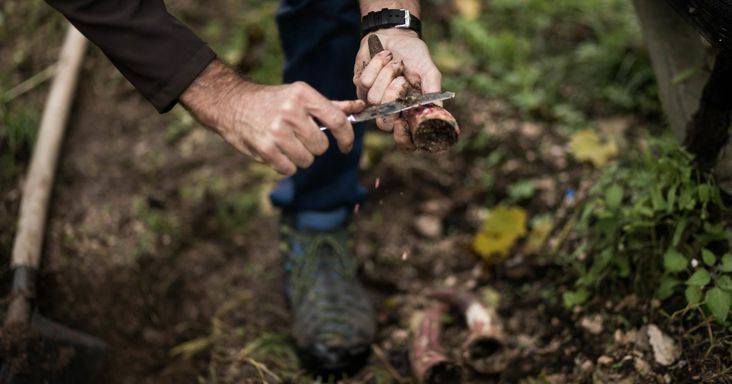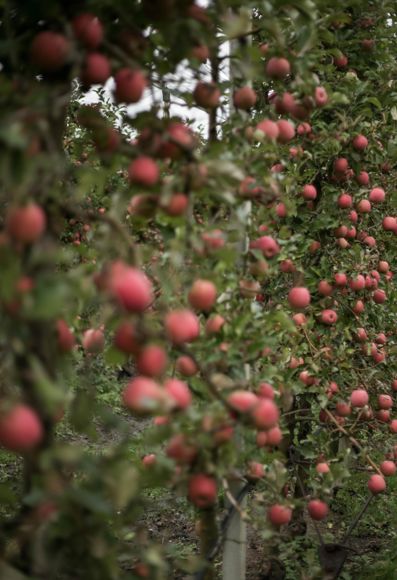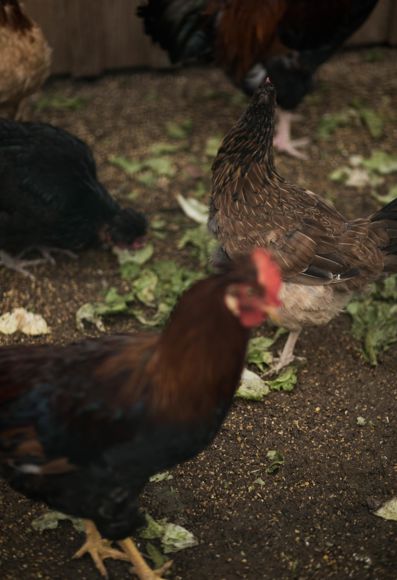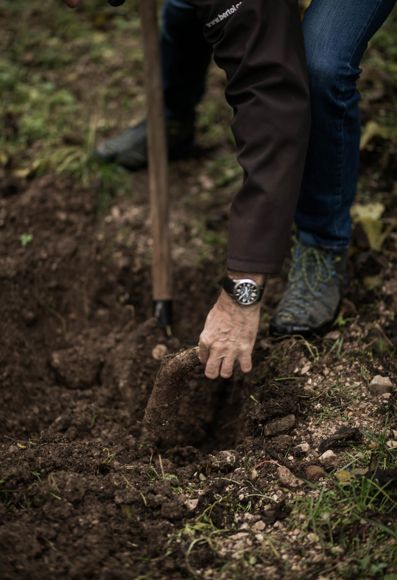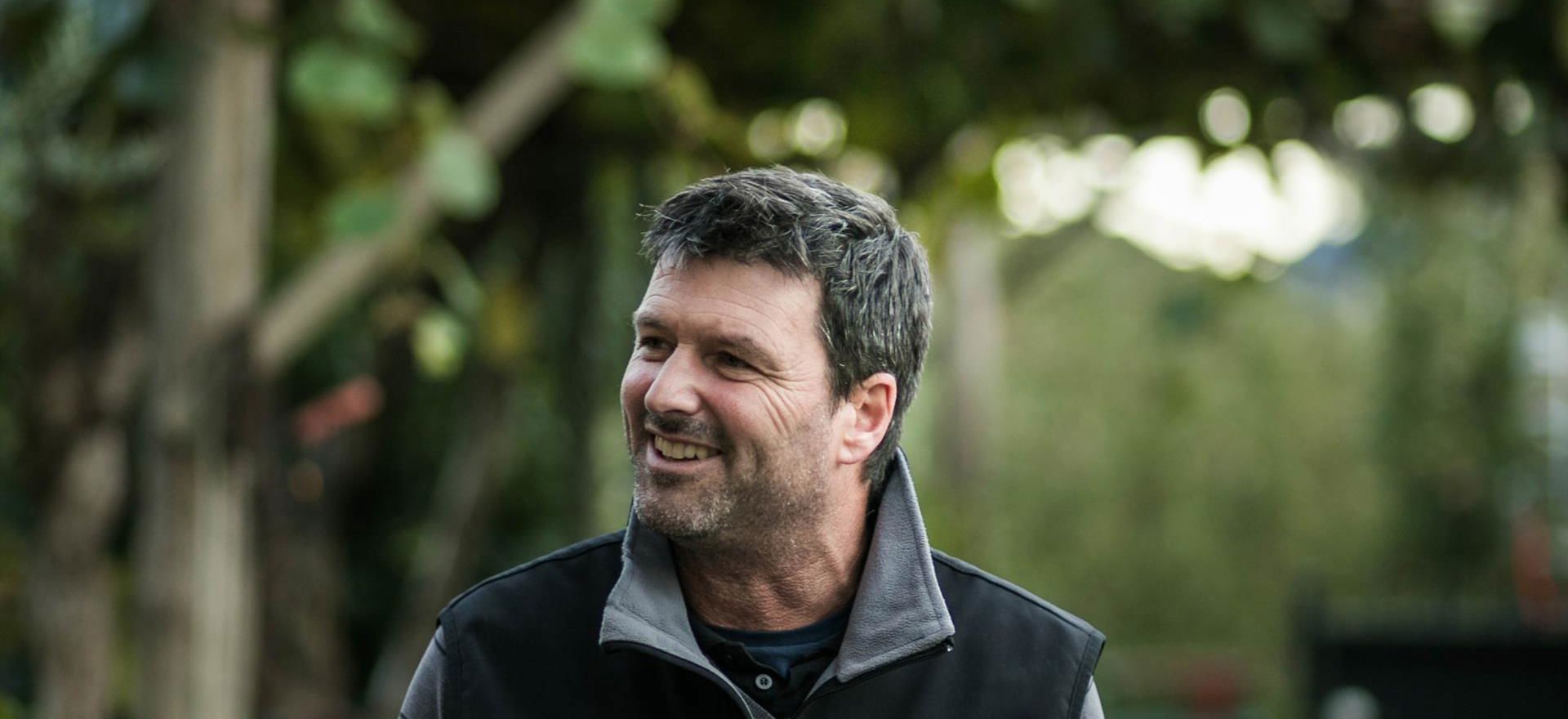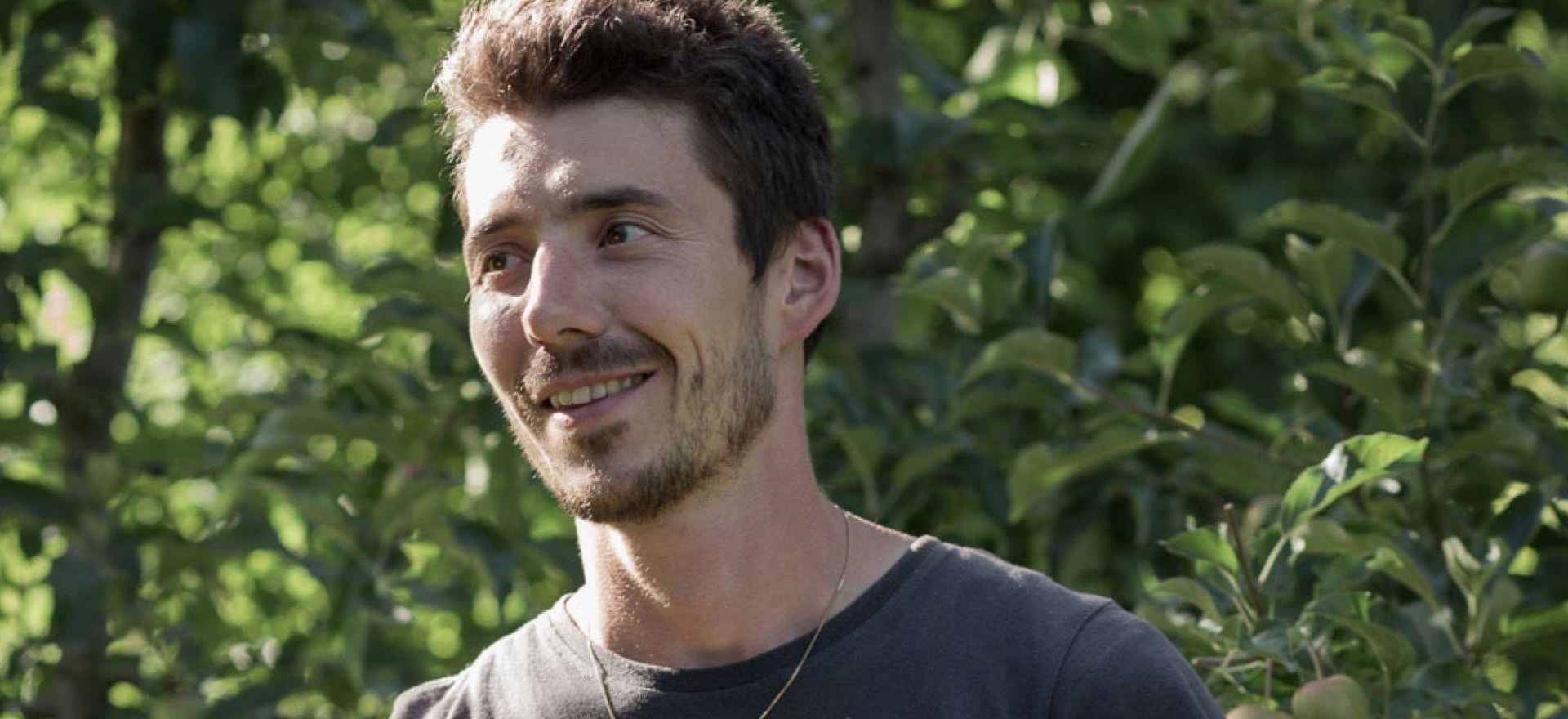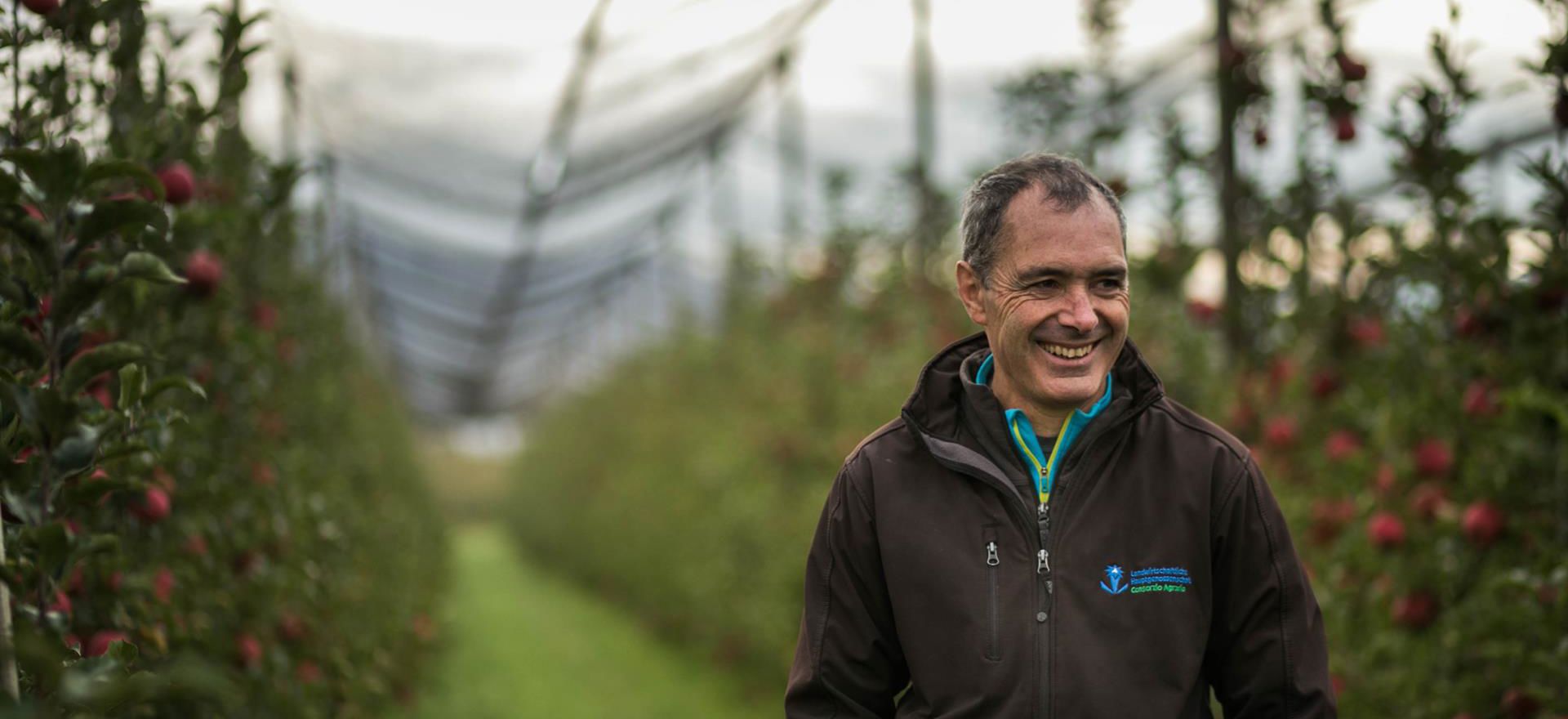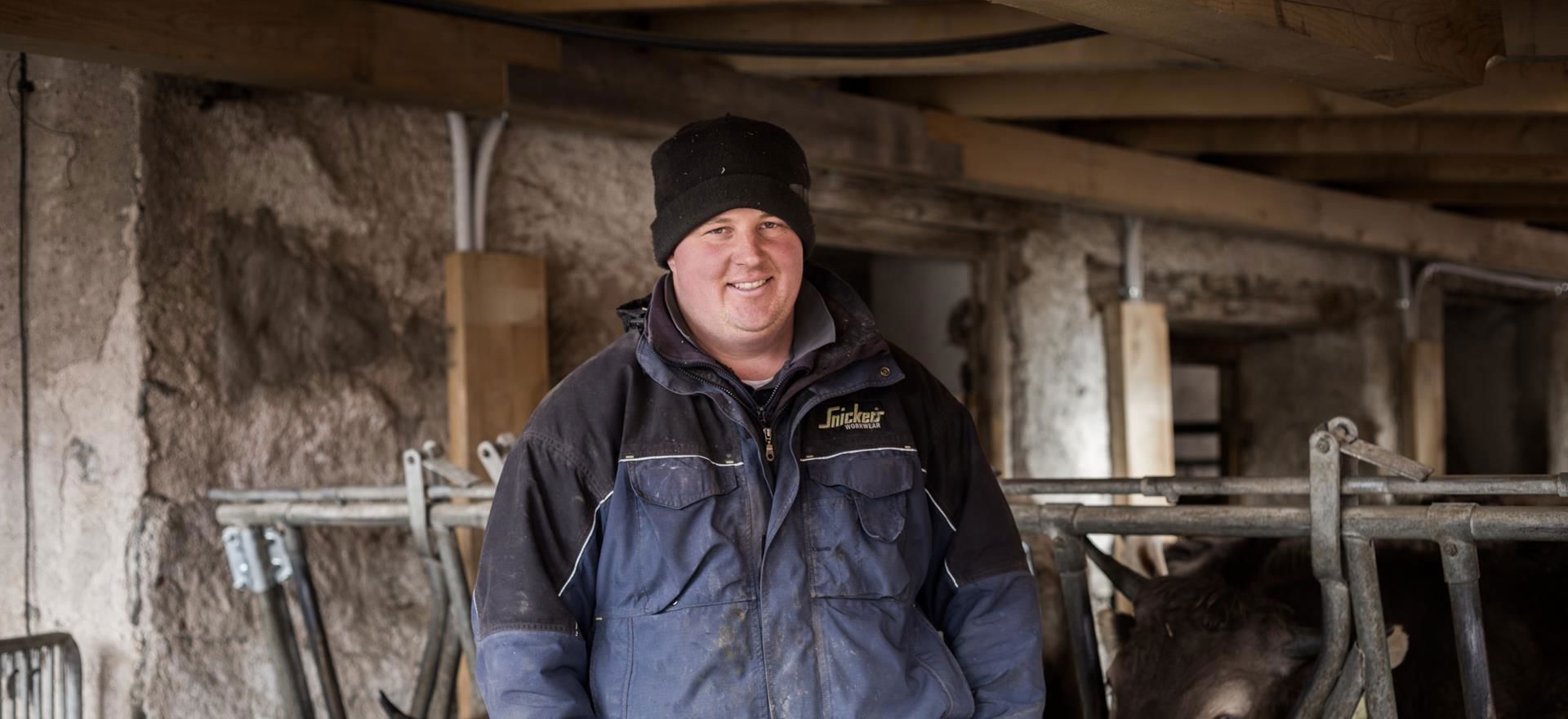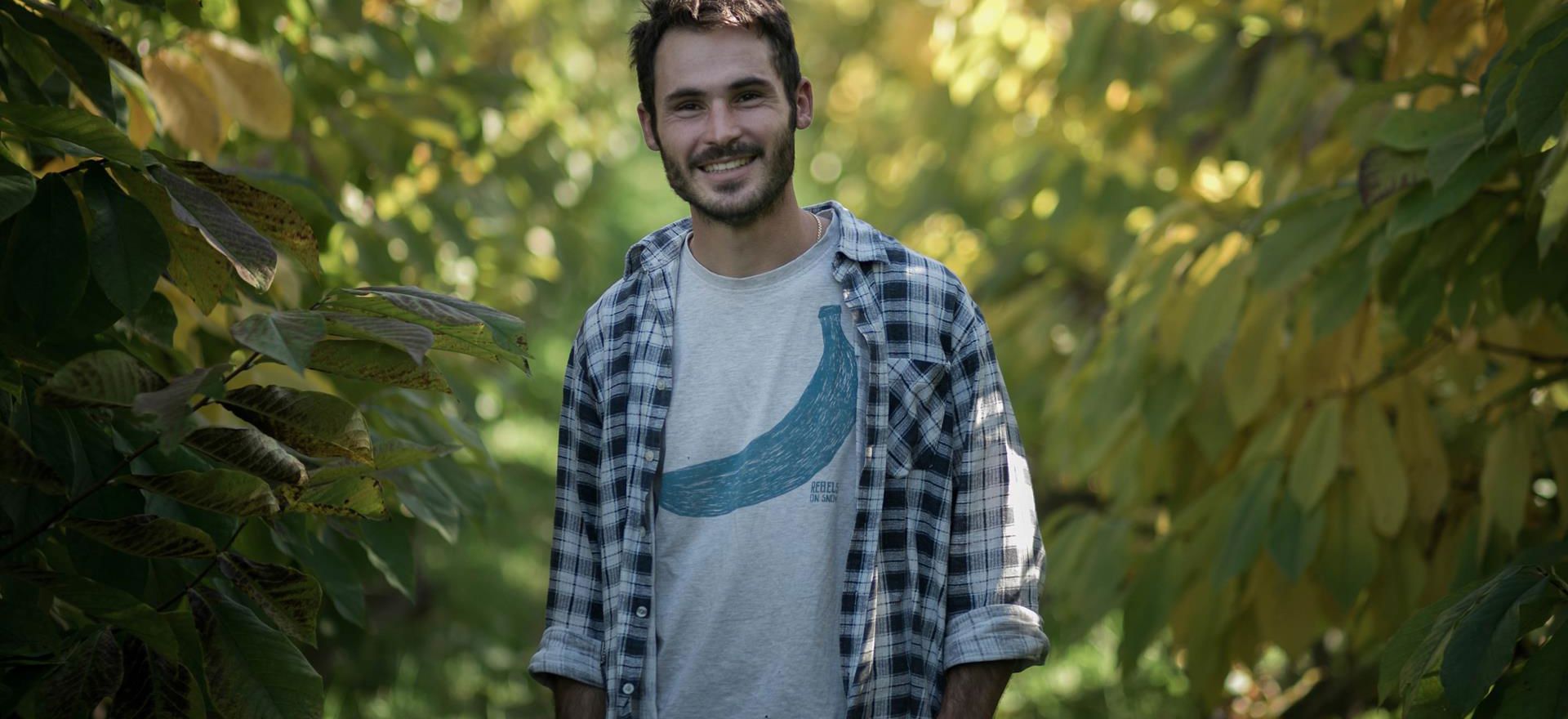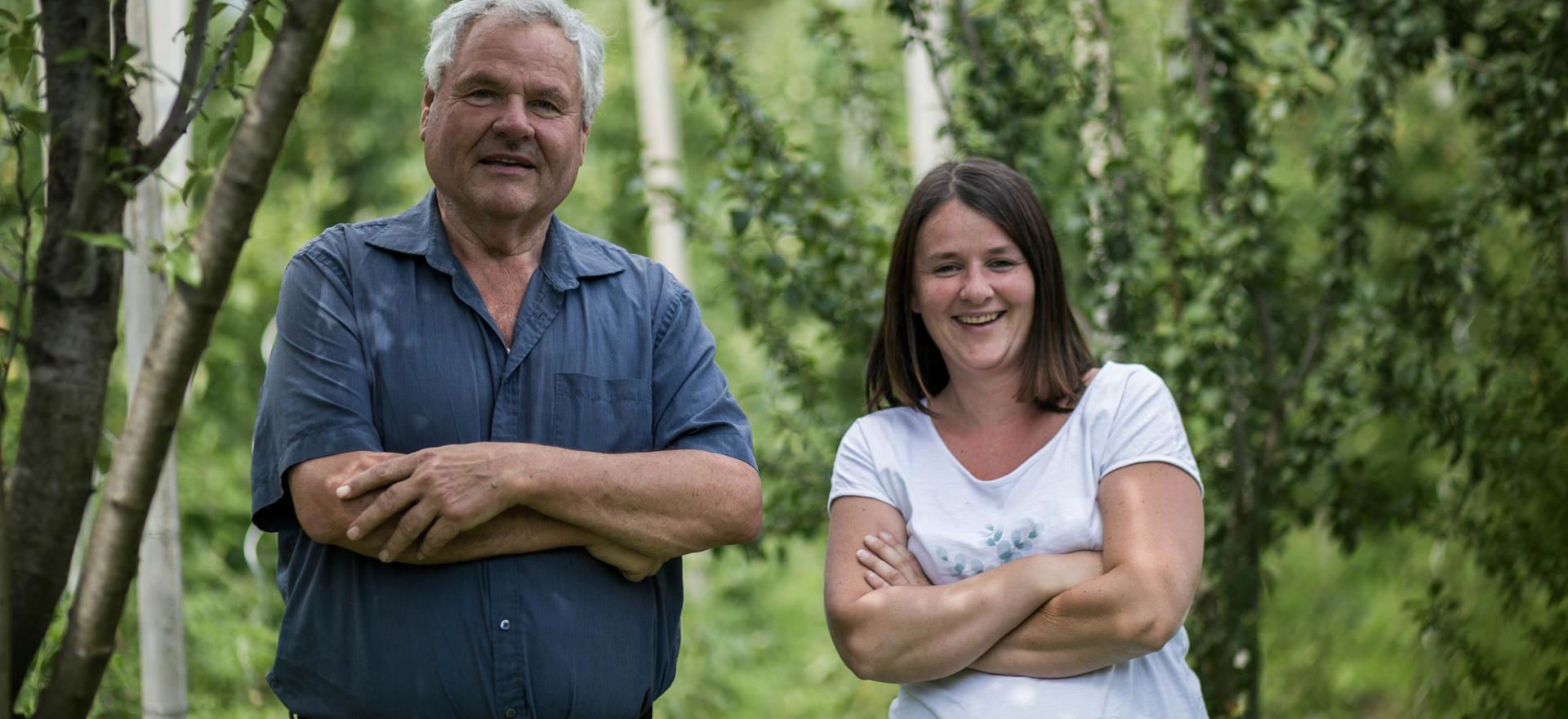One thing was clear to Hansjörg Stürz at an early age, "I'm going to be a farmer”.
Straight after graduating from the Laimburg agricultural college, he started working in apple orchards and vineyards. Unexpectedly, he was offered the chance to become a professional firefighter. And he took it.
However, as a side-line he continues to run the farm. Only possible because his wife Anita (in addition to her own job) lends a hand on the farm and his parents also help out. With so much work, Hansjörg and Anita have little free time, and there are no half measures with these two. In 2005 Hansjörg learns that a colleague works biodynamically. Inspired, he tries his hand at biodynamic viticulture. A short while later, the Stürz family is farming the entire farm biodynamically.
The change is not easy, but then change never is, and Hansjörg is no stranger to doubt during this time. The pressure not to make a mistake is huge in organic farming. It’s important to have the foresight to promote the balance of nature, strengthening plants and soil. And if there’s a problem, the regulations of the Bioland and Demeter associations only allow treatments with ingredients that also occur in nature.
However, as a side-line he continues to run the farm. Only possible because his wife Anita (in addition to her own job) lends a hand on the farm and his parents also help out. With so much work, Hansjörg and Anita have little free time, and there are no half measures with these two. In 2005 Hansjörg learns that a colleague works biodynamically. Inspired, he tries his hand at biodynamic viticulture. A short while later, the Stürz family is farming the entire farm biodynamically.
The change is not easy, but then change never is, and Hansjörg is no stranger to doubt during this time. The pressure not to make a mistake is huge in organic farming. It’s important to have the foresight to promote the balance of nature, strengthening plants and soil. And if there’s a problem, the regulations of the Bioland and Demeter associations only allow treatments with ingredients that also occur in nature.



